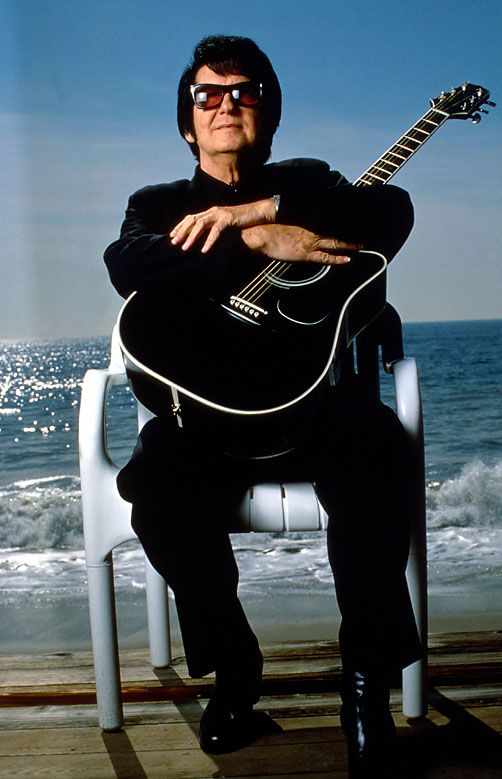When discussing legendary musicians who left an indelible mark on music history, Roy Orbison unquestionably ranks among the most iconic. His unmistakable voice and profound emotional resonance have enabled him to master the art of delivering songs that touch the deepest corners of the human heart. Among his vast and varied repertoire, “There Won’t Be Many Coming Home” stands out as a profoundly poignant and haunting masterpiece. This evocative piece delves into powerful themes of war, loss, and survival. Taken from the soundtrack album of the 1967 Western film The Fastest Guitar Alive, this song reveals Orbison’s extraordinary ability to convey complex, raw emotions through deceptively simple yet evocative melodies.
An Overview of The Fastest Guitar Alive Soundtrack
The Fastest Guitar Alive was a curious and ambitious project that blended Orbison’s immense musical talents with a comedic Western storyline. Despite the film’s lack of critical acclaim and commercial success, the accompanying soundtrack album highlighted Orbison’s compelling storytelling through music. Rich with Western and country influences, these tracks are interwoven with Orbison’s signature crooning style and emotional depth.
In particular, “There Won’t Be Many Coming Home” emerges as the emotional centerpiece of the album. It transcends its origin as a mere soundtrack piece, standing on its own as a work of profound beauty and deep sorrow. The song starkly reflects on the human cost of war and the harsh realities faced by soldiers, contrasting flashes of bravery with an overwhelming sense of tragedy.
Instrumentation and Soundscapes: A Minimalist Triumph
The instrumentation of “There Won’t Be Many Coming Home” serves as a masterclass in the power of simplicity—carefully designed to elevate Orbison’s ethereal vocal performance. The song opens with a somber, deliberate march-like rhythm, anchored by orchestral strings that create an ominous, foreboding atmosphere. These strings form the foundation of the arrangement, underscoring the somber mood and priming listeners for Orbison’s heartfelt vocals.
A soft, resonant piano injects a melancholic hue, punctuating the melody with precision and emotional depth. As the track unfolds, gentle guitar strums add a Western flair, harmonizing seamlessly with the rest of the instrumentation. Together, these elements create a hauntingly beautiful soundscape that perfectly mirrors themes of loss and despair.
Orbison’s voice—imbued with an operatic richness—stands at the core of the piece. His ability to traverse emotional landscapes, from quiet lamentations to soaring anguish, lends the song an unforgettable emotional impact. The climax arrives with a stirring orchestral swell that powerfully mirrors the song’s intense message.
Themes and Lyrics: A Reflection on the Cost of War
Lyrically, “There Won’t Be Many Coming Home” delivers a raw and unflinching commentary on the profound human cost of conflict. Told from the perspective of a soldier returning from battle, the narrative grapples with the haunting reality that many comrades will not survive to share the same fate. The heartbreaking line,
If they all came back but one, we’d grieve for one and all
captures the collective mourning and deep sorrow tied to such devastating loss.
Unlike many patriotic anthems from its era that glorify war or heroism, this song takes a somber, introspective approach. It reflects on the real price paid by those who fight and the loved ones left behind. This thoughtful perspective gives the song a timeless quality that continues to resonate deeply with listeners across generations.
A Unique Place in Roy Orbison’s Discography
While Orbison is best remembered for hits like “Oh, Pretty Woman” and “Crying,” “There Won’t Be Many Coming Home” reveals a different, more vulnerable facet of his artistry. This track showcases his ability to tackle profoundly serious, heartbreaking subjects, demonstrating his versatility as a musician. Although it did not achieve the commercial success of his more upbeat numbers, this song remains a hidden gem cherished by fans who value its raw emotional intensity.
Similar Songs for Further Listening
For those moved by “There Won’t Be Many Coming Home,” here are several recommendations offering complementary reflections on similar themes:
- Johnny Cash – “The Ballad of Ira Hayes”: A haunting reflection on war and sacrifice, with Cash’s deep baritone and minimalist surroundings creating an unforgettable atmosphere.
- Bob Dylan – “Blowin’ in the Wind”: This classic folk anthem questions peace, war, and human nature, echoing Orbison’s introspective storytelling.
- Kris Kristofferson – “Sunday Mornin’ Comin’ Down”: An introspective ballad that explores human vulnerability and quiet despair, mirroring the emotional depth of Orbison’s work.
- Hank Williams – “I’m So Lonesome I Could Cry”: Known for its melancholic and lonely tone, Williams’ classic resonates with Orbison’s emotive style.
- Glen Campbell – “Wichita Lineman”: Combining haunting melody with introspective lyrics, this track will appeal to fans of Orbison’s more serious compositions.
A Haunting Tribute to Loss
“There Won’t Be Many Coming Home” transcends being just a song—it is an emotional journey that starkly captures the realities of war and loss. Its minimalist yet evocative instrumentation, enriched by piano, guitar, and orchestral strings, perfectly complements the somber lyrics. Orbison’s unparalleled vocal range and emotive power breathe life into this timeless and haunting piece.
Though originally part of the The Fastest Guitar Alive soundtrack, the song has far outgrown its cinematic roots, securing its position among Orbison’s most memorable and moving works. For those wishing to delve into the full depth of his artistry or explore other powerful, emotive tunes, “There Won’t Be Many Coming Home” stands as both a compelling introduction and enduring masterpiece.
